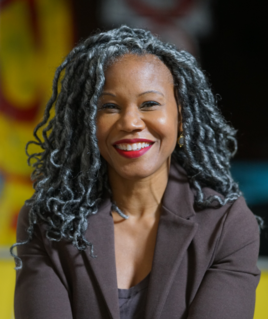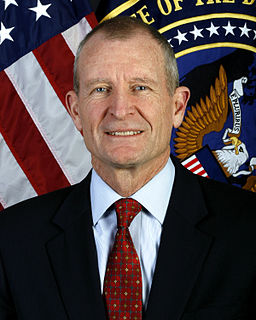A Quote by Francois de La Rochefoucauld
We acknowledge our faults in order to repair by our sincerity the damage they have done us in the eyes of others.
Related Quotes
Before making peace, war is necessary, and that war must be made with our self. Our worst enemy is our self: our faults, our weaknesses, our limitations. And our mind is such a traitor! What does it? It covers our faults even from our own eyes, and points out to us the reason for all our difficulties: others! So it constantly deludes us, keeping us unaware of the real enemy, and pushes us towards those others to fight them, showing them to us as our enemies.
Our commitment should be to leave our environment in better shape than when we found it, our nation's fiscal house in better order, our public infrastructure in better repair, and our people better educated and healthier. To indulge in immediate gratification and exploitation is an insult to previous generations, who sacrificed for us, and thievery from the next generation, who depend on our virtue.
We would willingly have others perfect, and yet we amend not our own faults. We would have others severely corrected and will not be corrected ourselves. The large liberty of others displeases us, and yet we will not have our own desires denied us. We will have others kept under by strict laws, but in no sort will ourselves be restrained. And thus it appears how seldom we weigh our neighbor in the same balance with ourselves.
That is why we need to travel. If we don't offer ourself to the unknown, our senses dull. Our world becomes small and we lose our sense of wonder. Our eyes don't lift to the horizon; our ears don't hear the sounds around us. The edge is off our experience, and we pass our days in a routine that is both comfortable and limiting. We wake up one day and find that we have lost our dreams in order to protect our days.
Every day God patiently bears with us, and every day we are tempted to become impatient with our friends, neighbors, and loved ones. And our faults and failures before God are so much more serious than the petty actions of others that tend to irritate us! God calls us to graciously bear with the weaknesses of others, tolerating them and forgiving them even as He has forgiven us.
Jesus Christ does not teach us a spirituality “of closed eyes”, but one of “alertness”, one which entails an absolute duty to take notice of the needs of others and of situations involving those whom the Gospel tells us are our neighbours. The gaze of Jesus, what “his eyes” teach us, leads to human closeness, solidarity, giving time, sharing our gifts and even our material goods.
Emotional dependence is the opposite of emotional strength. It means needing to have others to survive, wanting others to "do it for us," and depending on others to give us our self-image, make our decisions, and take care of us financially. When we are emotionally dependent, we look to others for our happiness, our concept of "self," and our emotional well-being. Such vulnerability necessitates a search for and dependence on outer support for a sense of our own worth.
People want to recommend themselves to God by their sincerity; they think, 'If we do all we can, if we are but sincere, Jesus Christ will have mercy on us.' But pray what is there in our sincerity to recommend us to God? ... therefore, if you depend on your sincerity for your salvation, your sincerity will damn you.





































